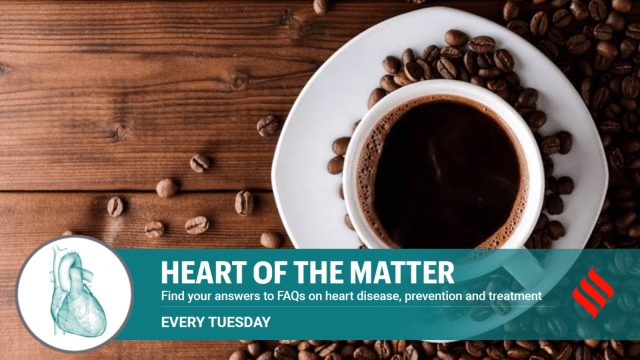Is coffee from the office machine raising your LDL cholesterol? Here’s the safest way to drink the brew
Swedish researchers test machines, find plaque-forming compounds in insufficiently filtered coffee
 Swedish researchers have found that coffee from workplace coffee machines, which they tested at healthcare facilities, contain high levels of cafestol and kahweol, compounds known to raise LDL cholesterol that forms plaque in hearts, also known as bad cholesterol.
Swedish researchers have found that coffee from workplace coffee machines, which they tested at healthcare facilities, contain high levels of cafestol and kahweol, compounds known to raise LDL cholesterol that forms plaque in hearts, also known as bad cholesterol.Are you making too many trips to the office coffee machine to come up with a new sales pitch by the end of the day? Turns out that machine-made brew may be just raising cholesterol levels in your blood and pose a threat to your heart health.
Swedish researchers have found that coffee from workplace coffee machines, which they tested at healthcare facilities, contain high levels of cafestol and kahweol, compounds known to raise LDL cholesterol that forms plaque in hearts, also known as bad cholesterol. They also lowered high-density lipoprotein (HDL) or good cholesterol. That was because the machines used metal filters instead of paper, which made median cafestol levels of 176 mg/L significantly higher than the 12 mg/L found in traditional paper-filtered coffee. The research team concluded that the “intake of insufficiently filtered coffee during working hours could be an overlooked factor for cardiovascular health due to its effect on plasma cholesterol concentrations.”
Filtered vs unfiltered coffee
Filtered coffee usually traps the oil and harmful compounds of the coffee bean, lowering the concentration of cholesterol-elevating substances in the final brew. So filtered coffee is healthier. Since it is rich in anti-clotting polyphenols and antioxidants, which fight cell damage, it actually helps control inflammation, one of the triggers of heart disease. A study by the Norwegian Department of Public Health showed how filtered coffee, compared to other types of coffee, reduced the risk of dying from cardiovascular disease, ischemic heart disease or a stroke. It improves insulin sensitivity, boosts metabolism, inhibits fat absorption and helps control abnormal heart rhythms.
Some types of coffee like French press, espresso, Greek or Turkish coffee, which don’t use filters, allow oils and compounds to pass into the coffee.
How much coffee is safe for the heart
Filtered coffee, if confined to three cups every day, is associated with maintaining a healthy heart. In fact, a recent meta-analysis, which involves review of all existing scientific literature, found that drinking the right kind of coffee in moderate amounts helped in maintaining cardiovascular health. Of course, these Western studies talk about black coffee, not coffee with sugar and milk, which is not cardio-protective enough.
What you need to watch out for is caffeine in your cup of coffee. Too much caffeine increases heart rate and blood pressure, which over time can be triggers for heart disease. Caffeine is a stimulant that promotes the release of stress hormones which make the heart work harder. This leads to arrhythmia or irregular heartbeats. Prolonged or severe arrhythmias can weaken the heart muscle, leading to heart failure and sudden cardiac arrest. However, all you need to do is limit caffeine consumption to 400 mg daily. Also remember the after-effects of coffee last up to eight hours, so no coffee after 4 pm as it can disrupt sleep and much-needed rest.
(Dr Shetty is lead cardiologist, medical director at Sparsh Hospitals, Bengaluru)
- 01
- 02
- 03
- 04
- 05































